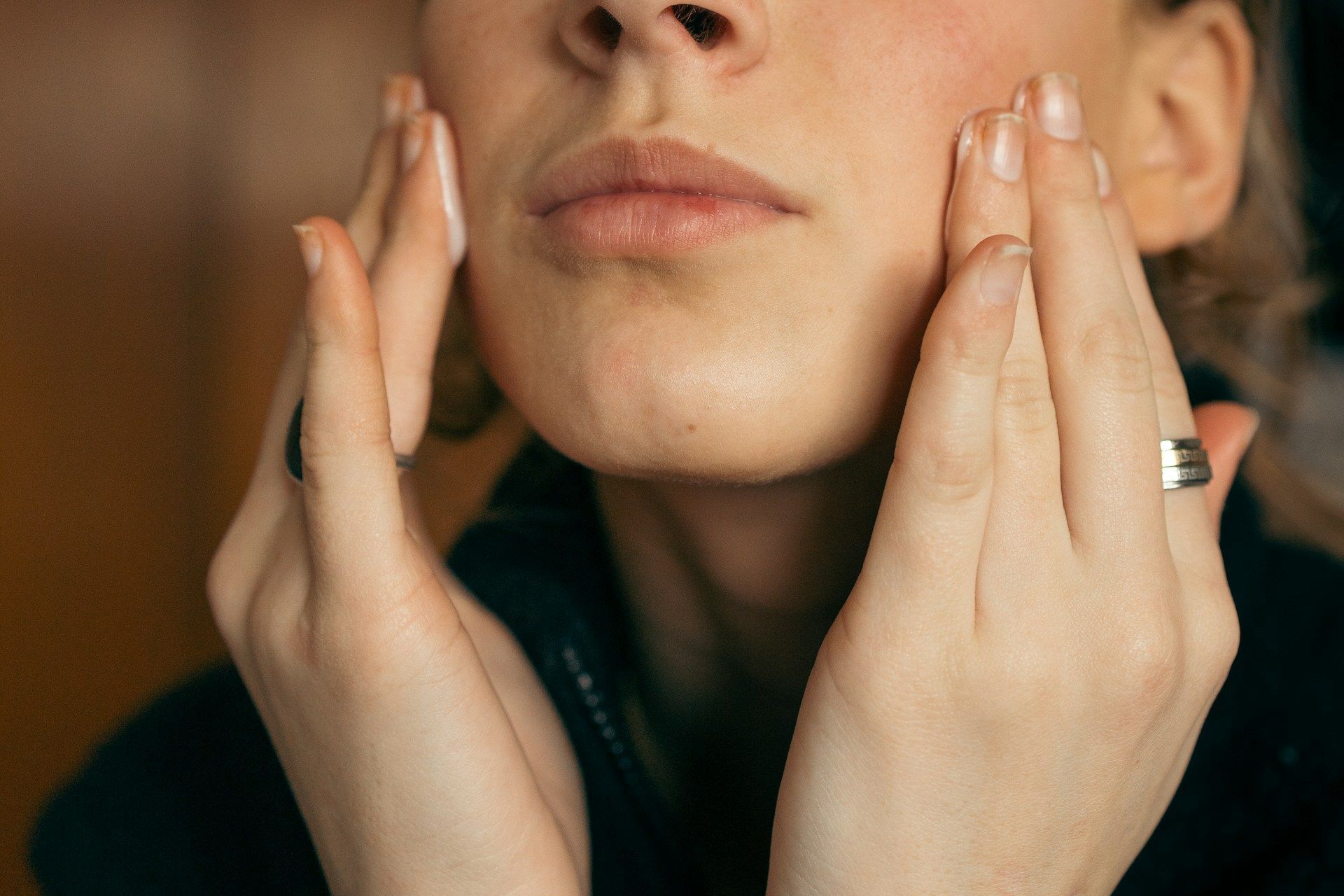Easy Ways to Relieve TMJ Pain with Dr. Cameron Kuehne's Tips

TMJ, or temporomandibular joint disorder, can cause a lot of pain and discomfort. This condition affects the jaw joint and the muscles that control jaw movement. When the TMJ isn’t working properly, it can lead to various symptoms, including jaw pain, headaches, earaches, and difficulty chewing. For many people in Meridian, TMJ pain can significantly impact daily life, making it hard to eat, speak, and even sleep comfortably.
Dr. Cameron Kuehne from The Center for Sleep Apnea and TMJ emphasizes the importance of addressing TMJ pain as soon as possible. There are effective ways to ease pain and improve jaw function without needing invasive treatments. By understanding what causes TMJ pain and exploring simple remedies, we can take the first steps towards relief and better jaw health.
In this article, we'll explore easy and practical methods to help manage TMJ pain. We'll cover simple at-home remedies, lifestyle changes, and when it's time to seek professional help. These tips from Dr. Cameron Kuehne are designed to provide the relief needed to live more comfortably and enjoy everyday activities. Let’s begin by understanding what TMJ pain is and its common causes.
Understanding TMJ Pain and Its Causes
TMJ pain occurs when there are problems with the jaw joint and the muscles that control jaw movement. This can be due to several reasons, including injury to the jaw, arthritis, or muscle fatigue from grinding or clenching teeth. One common cause of TMJ pain is stress, which can make the jaw muscles tense up and lead to discomfort. Other factors like poor posture, misaligned teeth, or even chewing gum too often can contribute to this condition.
Dr. Cameron Kuehne explains that TMJ disorders can manifest in various ways. You might experience pain or tenderness in your jaw, face, or neck. Some people hear clicking or popping sounds when they open or close their mouths. Others might find it difficult to open their mouths wide or feel like their jaws are "stuck." Recognizing these signs is important because early intervention can prevent the condition from worsening.
Dr. Cameron Kuehne's Top At-Home Remedies for TMJ Pain
Here are some simple yet effective at-home remedies recommended by Dr. Cameron Kuehne to help relieve TMJ pain:
1. Hot or cold compresses: Applying a warm, damp cloth to the jaw can help relax tight muscles and relieve pain. Conversely, a cold pack can reduce swelling and numb, sharp pain. Try both to see which provides better relief for you.
2. Gentle Jaw Exercises: Perform simple stretching exercises to strengthen and relax the jaw muscles. One exercise involves slowly opening and closing your mouth as wide as comfortable, repeating this a few times a day.
3. Soft Diet: Eating soft foods can help reduce the strain on your jaw. Avoid hard, crunchy, or chewy foods that require a lot of jaw movement. Opt for mashed potatoes, yogurt, soups, and smoothies.
4. Avoid Excessive Jaw Movement: Minimize activities that require wide opening or excessive jaw movement, such as chewing gum, singing loudly, or biting into large sandwiches.
5. Over-the-Counter Pain Relief: Non-prescription pain relievers, like ibuprofen or acetaminophen, can help reduce pain and inflammation. Always follow the instructions on the label, and consult with a healthcare provider if needed.
By using these at-home remedies, you can start to manage your TMJ pain more effectively and improve your overall comfort. Dr. Cameron Kuehne believes that simple changes and consistent care can make a big difference in relieving TMJ symptoms.
Lifestyle Changes to Support TMJ Relief
Making some adjustments to your daily routine can greatly help in managing TMJ pain. Here are a few lifestyle changes that Dr. Cameron Kuehne recommends to support TMJ relief:
1. Stress Management: High stress levels can worsen TMJ pain. Techniques like deep breathing exercises, meditation, or yoga can help reduce stress and tension in the jaw muscles. Even spending a few minutes a day relaxing can make a significant difference.
2. Posture Improvement: Poor posture can lead to neck and jaw strain, which may aggravate TMJ pain. Maintaining a good posture, whether sitting or standing, helps keep your jaw in a neutral position. If you work at a desk, ensure your workstation is set up ergonomically to support good posture.
3. Hydration and Nutrition: Staying hydrated and maintaining a balanced diet can improve overall health, which in turn supports jaw health. Avoid excessive caffeine and sugar, which can contribute to muscle tension.
4. Regular Physical Activity: Incorporating regular exercise into your routine can help reduce stress and muscle tension. Activities like walking, stretching, or light aerobic exercises can keep your muscles flexible and reduce TMJ symptoms.
By integrating these lifestyle changes, you can enhance your efforts to relieve TMJ pain and foster long-term jaw health. Making simple adjustments can lead to a significant improvement in your quality of life.
When to Seek Professional Help for TMJ Pain
Although at-home remedies and lifestyle changes can be very effective, there are times when professional help is necessary. Dr. Cameron Kuehne advises seeking professional help if:
1. Persistent Pain: If you experience constant or worsening pain that doesn't improve with self-care, it’s important to consult a specialist. Persistent pain may indicate an underlying issue that needs professional evaluation.
2. Difficulty in Jaw Movement: If you have difficulty opening or closing your mouth or if your jaw feels locked, it's time to seek help. These symptoms could suggest more serious TMJ problems that require professional treatment.
3. Severe Symptoms: Experiencing severe headaches, ear pain, or facial pain along with jaw discomfort may indicate advanced TMJ disorders. A specialist can work with you to identify the cause and develop a treatment plan.
4. Impact on Daily Life: If TMJ pain is affecting your ability to eat, speak, or sleep, it’s crucial to seek professional help. Ignoring these symptoms can lead to further complications and more intense pain.
Dr. Cameron Kuehne and his team are equipped to provide comprehensive care and effective treatments for TMJ disorders. Professional evaluation ensures you receive the appropriate care tailored to your specific needs.
Final Thoughts
TMJ pain can greatly affect daily life, but there are many ways to manage and relieve it. By understanding the causes and implementing at-home remedies, you can take steps toward feeling better. Dr. Cameron Kuehne’s tips on lifestyle changes can also support long-term jaw health and reduce discomfort.
However, there are times when professional help is crucial. Persistent pain, difficulty in jaw movement, severe symptoms, or significant impact on daily life are signs that you should consult with a specialist.
At The Center For Sleep Apnea and TMJ, we’re dedicated to helping Meridian residents achieve relief from
TMJ pain. Dr. Cameron Kuehne and our team are ready to provide the support and treatment you need. Don’t let TMJ pain control your life. Contact us today at The Center for Sleep Apnea and TMJ to schedule a consultation and start your journey to better jaw health.










